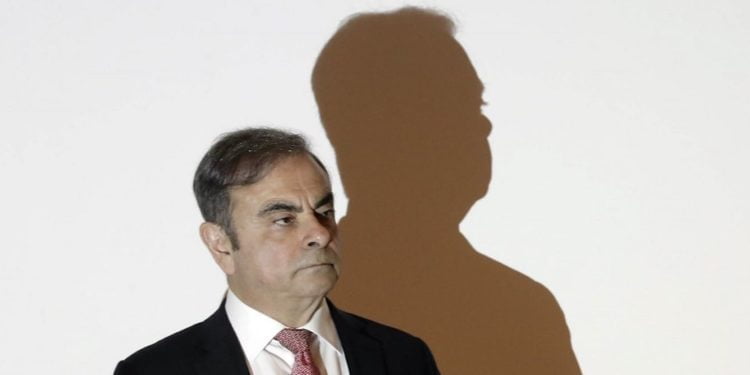[ad_1]
Past the doable unlawful takeovers and escapades, we are able to conjecture that three strategic errors and one governance error clarify why the one who helped develop the alliance between the 2 teams for twenty years, Carlos Ghosn, was ready discover himself beneath home arrest for a lot of months in Japan and now have the standing of a world fugitive.
Two views are to be thought-about: one is inside to the alliance and to the relations between the 2 companions, Renault and Nissan; the opposite is exterior, in liaison with the stakeholders, on the forefront of that are the French and Japanese States.
An alliance fairly than a merger
When the merger between Renault and Nissan was envisaged in 1998-1999, two strategic options were possible : the merger or the alliance. The selection of a merger is all of the extra defensible (seems all of the extra logical and rational) as there are numerous areas by which corporations can obtain financial savings or extra income in a sustainable manner by getting nearer.
Conversely, if the potential for synergies considerations solely a really restricted scope of the respective actions of the 2 corporations, it’s the alliance which have to be privileged, besides that the challenge doesn’t have an industrial logic. Within the Renault-Nissan case, the merger appears to be the best choice, given the extent of the potential synergies.
Nonetheless, the founding father of the Renault-Nissan alliance, Louis Schweitzer, rejected this feature. Three contextual causes justify this preliminary alternative:
The primary is monetary. A merger and acquisition would have led to the idea of all of the liabilities of Nissan which was in very unhealthy form in 1999: a debt estimated between 18 and 25 billion dollars in line with the perimeter retained for the keiretsu, recurrent losses and degraded competitiveness. Renault didn’t have the means to imagine the doable chapter of Nissan whose restoration was not acquired.
The second is managerial. The power to actually cooperate was not acquired in a Franco-Japanese context marked by a big geographic distance, organizational and national cultural differences, and the necessity to work in numerous time zones and with a 3rd language.
The third is political and cultural. The merger and acquisition would have been perceived because the absorption of a flagship of the Japanese vehicle by a French producer nearly unknown to Japan, a prospect that was unacceptable each from a cultural and political perspective.
Below these circumstances, the alliance was the one acceptable choice on each side. Over the previous twenty years, it has grown with growing industrial and organizational integration, however the two corporations have remained legally unbiased, thus sparing politico-cultural susceptibilities.
Managerial "Rubicon"
When we’ve, over these years, labored with MBA managers on the "Renault-Nissan case", the query of the evolution of the alliance in the direction of a merger was systematically posed by managers of corporations, no matter their nationality. It at all times appeared to us that the mixing of all of the capabilities of the worth chain might be developed, however that there was a pink line to not be crossed, these of the founding ideas of the alliance, specifically the upkeep of the identification of the 2 corporations and their authorized independence.
By searching for to rework the unique alliance right into a merger, Carlos Ghosn would have crossed this managerial "rubicon" and provoked the maneuvers of Japanese leaders which led to his loss. Besides to imagine in myth of the merger of equals, the operation would certainly have redistributed the playing cards of energy, eminently thorny topic because it takes the type of a zero-sum recreation.
The primary strategic error is due to this fact primarily based on the assumption that financial relevance (strengthening synergies by a merger) is synonymous with feasibility and acceptability. Two of the explanations initially justifying the alliance are definitely not legitimate: Nissan's very degraded state of affairs and the doubts in regards to the skill of the 2 gamers to cooperate and, due to this fact, to create worth. However the third motive remained very current: the non-acceptability of a takeover of Nissan by Renault, bolstered by the turnaround of Nissan, in addition to the non-acceptability for Renault of seeing its associate perked as much as take the lead of the brand new set .
A second strategic error pertains to the management of the alliance. Initially appointed basic supervisor of Nissan (in 1999) to show across the Japanese producer, Carlos Ghosn grew to become president of Nissan in 2001, then president of Renault and president of RNBV (the administration construction of the alliance) in 2005. Confidence conferred in Ghosn following Nissan's turnaround has made it doable to carry a number of workplaces. However this hegemonic place, other than having the ability to transcend the bounds of understanding, was not a clean verify for directive management, since any alliance requires shared management, until the dominated associate expressly consents.
There may be little doubt that Carlos Ghosn forgot it, which is bolstered by his feedback made at his press convention on January 7, when he declared " The alliance can succeed without me, however it should observe sure guidelines. It is not going to work on the idea of consensus, we’re at present mistaken ”. Ultimately, when the chance arises, these with no voice within the image react.
A 3rd strategic error stems from the relations that the previous boss of the Alliance has cast, or fairly, has not established with the French State, which was one of many shareholders, and never least, of Renault. How else to clarify, at the very least initially of the case, that the French state is so disinterested in a single who was considered one of these nice captains of business to whom France owes the event of a part of its automotive sector ? Carlos Ghosn ignored the French state and its representatives, and they’re returning it to him at this time.
Little question he did the identical on the Japanese facet. The previous chief of the Renault-Nissan Alliance might have had a conception of the business primarily based on Porter's preliminary mannequin, which ignores public powers and their affect. Even a worldwide and really highly effective firm government can’t ignore the position and weight of nationwide authorities. The present state of affairs of the previous boss of the Renault-Nissan Alliance and the very uncommon assist it elicits illustrate this relationship between the corporate and the State, or fairly within the present case, between the corporate and the States .
A hegemonic place by no means denounced
These three strategic errors, each inside and exterior, shed some mild on the descent into hell that Carlos Ghosn skilled. Additionally they illustrate the difficulties of managing a worldwide alliance and lift the query of the governance of the sort of group.
The Renault-Nissan case reveals that a chief might not at all times be "the person for the job". Louis Schweizter had the expertise and sensitivity to think about a hybrid mannequin able to avoiding the pitfalls of the aborted Renault-Volvo merger. Carlos Ghosn had the expertise to assist the restoration of Nissan. It was a lot much less apparent than his persona, in addition to hubris and narcissism, prompted by the success of the Japanese producer’s restoration, are per the shared management required to consolidate the alliance.
The error of the governing our bodies of Renault-Nissan can have been to not denounce the hegemonic place of Carlos Ghosn, at the very least its excesses. Accountable additionally, due to this fact, however maybe not responsible as a result of the rooting of Carlos Ghosn might have hampered any thought of his alternative or his placing in step. The "Ghosn affair" has been salutary on this regard.
[ad_2]
Source link









